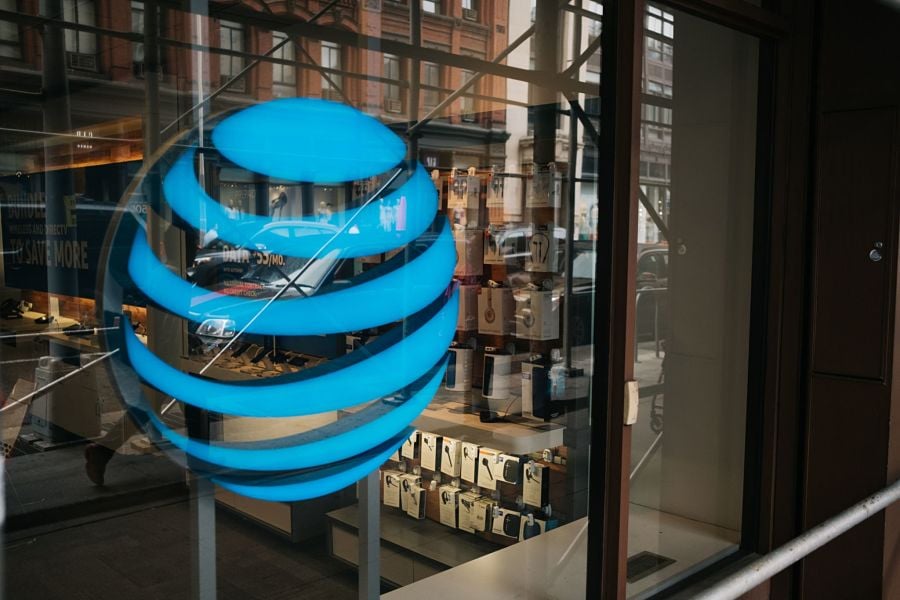

AT&T saw a big win in a five-year-old lawsuit over its 401(k) plan, with a federal judge on Sept. 28 granting summary judgment in the company’s favor.
In 2017, the telecommunications giant was sued in U.S. District Court in Central California for alleged fiduciary breaches in the plan, including claims over administrative fees paid to the plan provider, Fidelity, as well as to indirect compensation that Financial Engines paid to that firm.
“Defendants present extensive evidence that they acted prudently in monitoring the plan’s record-keeping expenses,” the judge wrote in the recent order. “The facts show that members of AT&T Services Benefits team periodically reviewed 408(b)(2) disclosures and invoices from Fidelity to ensure the compensation for record-keeping was reasonable.”
The plaintiffs failed to produce any evidence indicating that AT&T acted imprudently, according to the order.
Other claims related to the financial relationship between Fidelity and Financial Engines — neither of which is a party in the case — also failed. The plaintiffs alleged that AT&T failed in its duty by not evaluating third-party compensation and that it should have disclosed the payments Financial Engines made to Fidelity in annual Form 5500 filings. They also claimed that compensation Fidelity received from its BrokerageLink service should have been disclosed.
However, AT&T’s plan committee was aware of the arrangement in 2017 and used that knowledge to negotiate lower record-keeping fees, according to court records.
“Plaintiffs here cannot maintain an ERISA claim based on the fiduciaries’ purported failure to consider compensation between Fidelity and Financial Engines, because that compensation exists independent of the plan and stems from an agreement to which the plan is not a party,” the judge wrote. “Plaintiffs’ claim therefore fails as a matter of law, and there is no triable issue of fact for a jury to consider.”
Plaintiffs in the lawsuit are represented by numerous law firms.
A proposed class-action case against Wesco Distribution hit a stumbling block this week, with a judge on Monday dismissing the claims but giving the plaintiffs a chance to refile them.
The lawsuit, brought earlier this year by law firms Franklin D. Azar & Associates and Chimicles Schwartz Kriner & Donaldson-Smith, alleges that the 401(k) plan sponsor failed in its fiduciary duties by opting for higher-fee share classes of mutual funds and not reining in record-keeping fees.
However, those claims fell flat because they lacked specificity and apples-to-apples comparisons to other plans and services that could potentially show a fiduciary fault.
“Plaintiffs’ mere price tag to price tag comparison, accompanied by conclusory allegations and lack of detail as to the categories of fees, does not sufficiently plead a breach of duty of prudence,” the judge wrote.
The plaintiffs law firms have until Oct. 18 to file an amended complaint that would address the shortcomings in their claims.
Tech firm PTC appears to have reached a settlement in a lawsuit over alleged fiduciary breaches in its 401(k) plan.
On Monday, the U.S. District Court for Massachusetts issued an order that the parties must file a motion for preliminary approval of a class-action settlement by Dec. 1. That order did not include any specifics about the monetary value of the settlement or any other components.
Plaintiffs filed a lawsuit against PTC more than a year ago, alleging that the company violated the Employee Retirement Income Security Act in connection with higher-than-necessary costs for investments within the $632 million plan. For example, the plan sponsor allegedly failed to consider investment alternatives with lower costs or better performance records than those included within the plan and in some cases did not opt for the lowest-fee share classes of funds it used, according to the complaint.
Law firms Capozzi Adler and Shoffner & Associates represent plaintiffs in the proposed class.

Relationships are key to our business but advisors are often slow to engage in specific activities designed to foster them.

Whichever path you go down, act now while you're still in control.

Pro-bitcoin professionals, however, say the cryptocurrency has ushered in change.

“LPL has evolved significantly over the last decade and still wants to scale up,” says one industry executive.

Survey findings from the Nationwide Retirement Institute offers pearls of planning wisdom from 60- to 65-year-olds, as well as insights into concerns.
Streamline your outreach with Aidentified's AI-driven solutions
This season’s market volatility: Positioning for rate relief, income growth and the AI rebound
